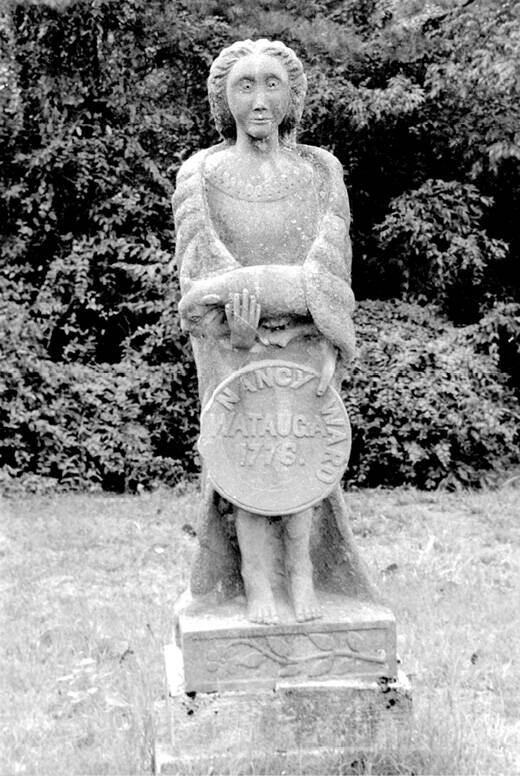Nancy Ward: The Cherokee “War Woman” Who Fought For Peace

PinterestA statue of Nancy Ward that once stood in Tennessee.
Nancy Ward — born Nanyehi or “she who walks among the spirits” — became famous during a battle between the Cherokee and the Creek Nation in 1755. While chewing lead bullets for her husband to make them deadlier, she saw him fall and die on the battlefield. In response, she quickly grabbed his rifle, rallied the troops, and helped lead the Cherokee to victory.
Afterward, the Cherokee bestowed a new title upon her: Ghighau, a “Beloved Woman.” They also made her the head of the Women’s Council of Clan Representatives and gave her a vote on the Cherokee General Council.
But despite being known as a “war woman,” Ward was less interested in war than in peace. She’d grown up as the niece of a Cherokee chief named Attakullakulla, who believed that the Cherokee needed to coexist with British colonists in order to survive. Ward embraced his point of view.
As colonists increasingly pushed into Cherokee territory, Ward advocated for peaceful coexistence. And, for a short time, the Cherokee and the white settlers lived side by side. Ward even married a white man, Bryan Ward, and she learned how to make cheese and butter from a white woman settler.
Ward attempted to keep things peaceful even as the colonists continued to take tribal land. She discouraged the frequent Cherokee raids on white settlements. And when the American Revolutionary War broke out in 1775, Ward took the side of the colonists — even though most Cherokee wanted to take advantage of the situation to drive out the settlers.
When the colonists and the Cherokee tried to take steps toward a truce, they appointed Ward as their negotiator. She pleaded for peace.
“You know that women are always looked upon as nothing,” Ward said, “but we are your mothers; you are our sons. Our cry is all for peace; let it continue. This peace must last forever. Let your women’s sons be ours; let our sons be yours. Let your women hear our words.”
Although her efforts produced an uneasy truce, it didn’t last.
As time marched on, the settlers continued to gobble up Cherokee territory — and Ward’s once-powerful belief in peaceful coexistence began to fade. She was left to beg tribal leaders to not agree to a deal proposed by the U.S. government, which would exchange their tribal lands for different lands.
“We have raised all of you on the land which we now have. Your mothers, your sisters ask and beg of you not to part with any more of our land,” said Ward, who was about 80 years old by then.
Despite her protests — and the protests of other women — the deal went through. Ward died in 1822 as the last Ghigau of the Cherokee.





